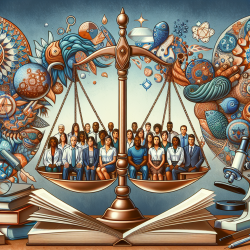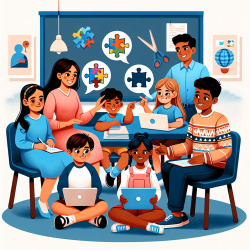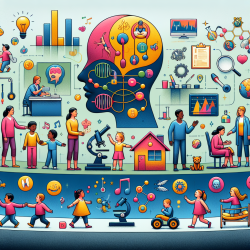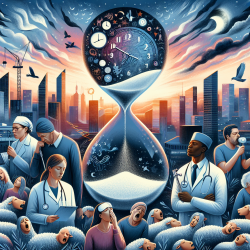In today's diverse society, counselors are increasingly called upon to work with clients from various racial and ethnic backgrounds. This diversity brings with it the challenge of understanding and addressing racial biases that may affect therapeutic outcomes. A recent study titled "Assessing Bayesian Racism Scale: Measuring Endorsement of Racial Stereotypes" offers valuable insights into this issue.
What is Bayesian Racism?
Bayesian racism refers to the belief that it is rational to discriminate against people based on existing racial stereotypes. This form of racism is associated with negative feelings towards minoritized groups and a desire to maintain racially inequitable social hierarchies. The Bayesian Racism Scale (BRS) was developed to measure these prejudicial attitudes and provide a tool for assessing multicultural competence within the counseling profession.
The Importance of the Bayesian Racism Scale
The BRS offers a unique opportunity for counselors to reflect on their own biases and improve their practice. By using this scale, counselors can identify subtle forms of racism that may not be immediately apparent but can significantly impact client well-being. The scale's ability to highlight these biases makes it an essential tool for promoting social justice in counseling.
Implementing the BRS in Practice
- Self-Reflection: Counselors can use the BRS as a self-assessment tool to uncover any unconscious biases they may hold. This reflection can lead to more culturally sensitive practices and better client outcomes.
- Client Assessment: Including the BRS in client intake packets can help counselors identify clients who may endorse racial stereotypes. This information can guide therapeutic interventions and promote a more individualized approach.
- Psychoeducation: For clients struggling with internalized racial biases, the BRS can serve as a starting point for discussions about how societal influences have shaped their beliefs. Counselors can use this information to educate clients about the impact of these biases on their lives.
- Professional Development: Counseling organizations can incorporate the BRS into training programs to enhance multicultural competence among practitioners. This proactive approach ensures that counselors are equipped to address racial biases effectively.
The Impact of Racial Bias on Counseling Outcomes
Research has shown that racial bias, even when subtle, can negatively affect counseling outcomes. Clients who perceive their counselor as biased are less likely to engage fully in therapy and may experience lower levels of well-being. By addressing these biases head-on, counselors can create a more inclusive and supportive environment for all clients.
Encouraging Further Research
The study on the BRS highlights the need for ongoing research into how racial biases manifest in counseling settings. Future studies could explore the scale's effectiveness across different populations and cultures, as well as its potential applications in law enforcement and criminal justice training programs.
The BRS represents a significant step forward in understanding and addressing racial bias in counseling. By implementing this tool, counselors can enhance their practice, promote social justice, and improve client outcomes.
To read the original research paper, please follow this link: Assessing Bayesian Racism Scale: Measuring Endorsement of Racial Stereotypes










